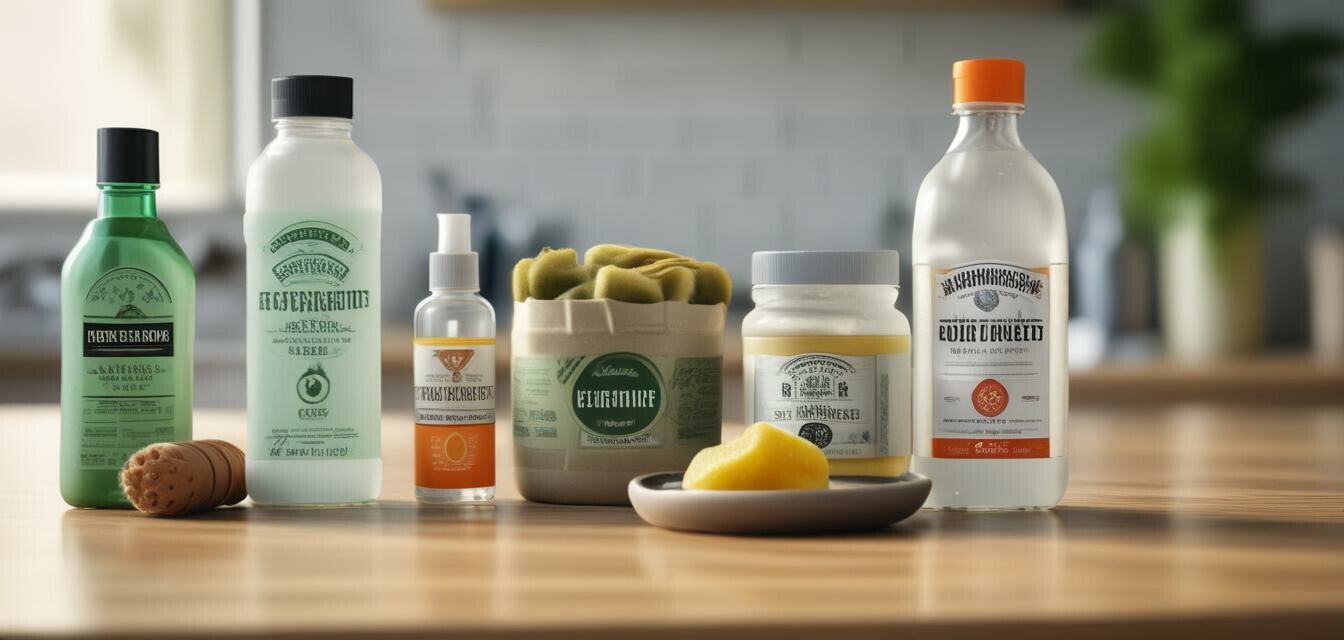
Eco-Friendly Cleaning: Best Practices for Appliances
Key Takeaways
- Utilize natural ingredients like vinegar and baking soda for cleaning appliances.
- Avoid harsh chemicals to enhance your appliance's longevity and performance.
- Regular maintenance and cleaning can improve energy efficiency.
- Each type of appliance has specific cleaning methods to ensure safe and effective results.
In today's world, becoming more environmentally conscious has never been more vital. By adopting eco-friendly cleaning methods, you can maximize the lifespan and performance of your appliances while minimizing the use of harmful chemicals. This article will guide you through various best practices for cleaning energy-efficient appliances in your home. Whether you’re new to maintaining appliances or looking for more sustainable practices, you’ll find valuable insights here.
Why Choose Eco-Friendly Cleaning?
Eco-friendly cleaning methods not only help reduce your carbon footprint but also promote a healthier home environment. Here are some reasons to consider eco-friendly cleaning:
- Healthier Home: Reducing chemical exposure lowers the risk of allergic reactions and respiratory issues.
- Cost-Effective: Many eco-friendly cleaning products can be made from inexpensive household items.
- Environmentally Friendly: Minimizing chemical use helps protect our air and water quality.
Essential Eco-Friendly Cleaning Tools
Before diving into specific cleaning techniques, gather a few essential tools to make your eco-friendly cleaning project easier:
- Microfiber cloths
- Spray bottles
- Baking soda
- White vinegar
- Castile soap
- Essential oils (optional for fragrance)
Best Practices for Cleaning Different Appliances
| Appliance | Eco-Friendly Cleaning Method | Frequency |
|---|---|---|
| Refrigerators | Mix equal parts of vinegar and water in a spray bottle. Wipe down shelves and walls with a microfiber cloth. | Every 1-2 months |
| Dishwashers | Run an empty cycle with a cup of vinegar placed on the top rack for deep cleaning. | Monthly |
| Washing Machines | Use a mixture of baking soda and vinegar to clean the drum and eliminate odors. | Every 1-2 months |
| Microwave Ovens | Heat a bowl of water with lemon juice for 5 minutes. Wipe down surfaces afterward. | Weekly |
| Air Conditioners | Clean or replace filters regularly and wipe down the exterior with a damp cloth. | Monthly |
| Heaters | Dust and vacuum visible vents, and use a damp cloth for the exterior. | Every season |
Following these appliance-specific cleaning methods not only enhances their longevity but also ensures they operate at peak energy efficiency. Want to learn more tips on maintaining other appliances? Visit our Tips and How-to Articles section for more insights.
DIY Eco-Friendly Cleaning Solutions
Creating your own cleaning solutions can save money while ensuring your cleaning methods are both eco-friendly and effective. Here are some recipes:
1. All-Purpose Cleaner
- 1 part water
- 1 part white vinegar
- 10-15 drops of your favorite essential oil (optional)
Mix in a spray bottle and use on most surfaces.
2. Baking Soda Scrub
- 1 cup baking soda
- 1 cup water
Mix to form a paste. Use this scrub for tough stains or grime in appliances like ovens or sinks.
3. Laundry Booster
- 1 cup baking soda
- 1 cup vinegar
Add to your washing machine to boost cleaning power and freshness.
Tips for Sustainable Cleaning
To maximize your eco-friendly cleaning efforts, incorporate these additional tips:
- Reuse old towels or cloths instead of disposable paper towels.
- Store your cleaning solutions in recycled or repurposed containers.
- Open windows while cleaning to improve ventilation without chemical air fresheners.
- Opt for energy-efficient appliances that require less cleaning, thus saving resources.
Pros
- Promotes a healthier living environment.
- Cost-effective and easy to prepare solutions.
- Reduces exposure to harmful chemicals.
- Enhances appliance longevity and efficiency.
Cons
- Some natural solutions may require more elbow grease.
- Specific stains may need specialized treatments.
Conclusion
Adopting eco-friendly cleaning practices for your appliances is a small yet significant step toward a healthier home and planet. By using natural ingredients and sustainable techniques, you can maintain your appliances' efficiency while contributing to a more eco-conscious lifestyle. Start implementing these tips today and experience the benefits of cleaner living!
Further Reading
For more information on energy-efficient appliances and how to maintain them effectively, check out our comprehensive Buying Guides or stay updated with the latest trends in our News and Trends section.